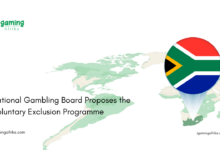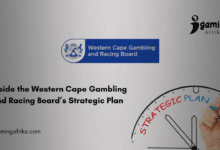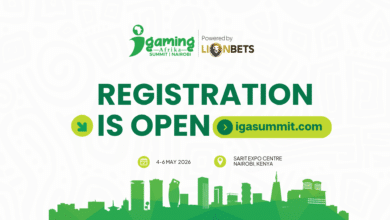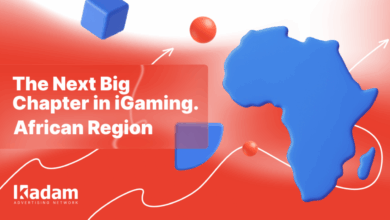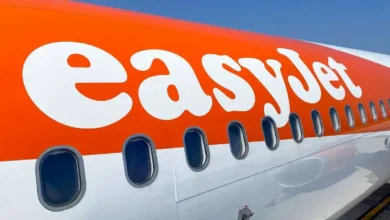Africa: iGaming’s Next Frontier?
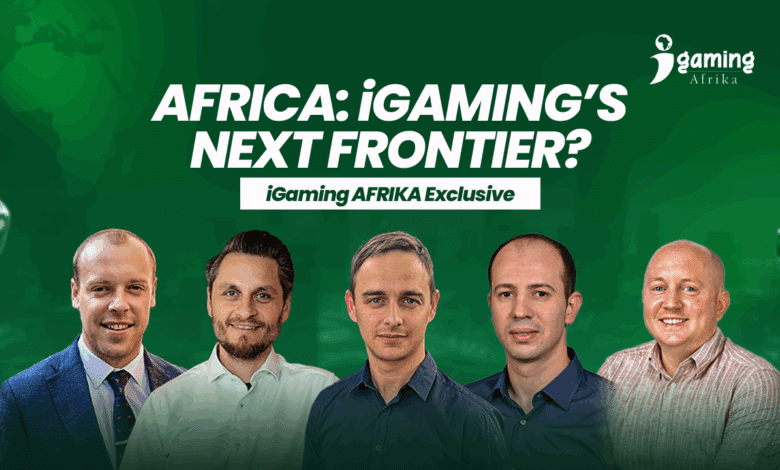
While Latin America has stolen the spotlight in recent years, a lower-profile success story has been unfolding 2,000 miles away in Africa. With a fast-improving technical infrastructure and increasing appetite for online gambling, the continent remains one of iGaming’s most promising growth areas.
iGaming AFRIKA spoke exclusively with James Everett, VP Africa & LatAm at BetGames, Michael Bauer, CPO/CRO at Greentube, Brendon Jeacocks, Regional Director at Altenar, Toni Karapetrov, Head of Corporate Communications at Habanero, and Joe Andrews, Head of Sales – Africa at SIS, to find out the most significant challenges currently facing African markets, the importance of differentiating between countries, and how suppliers can tailor their offering to maximise impact in the region.
How have African iGaming markets evolved in recent years? What key milestones stand out?
James Everett: The African online gambling market was valued at approximately US$1.62 billion in 2023 and reached close to $1.85 billion in 2024, showing a compound annual growth rate of 5.87%. With the market projected to hit $1.94 billion by 2025, it continues to indicate an upward trajectory over the coming years.
Infrastructure development has improved significantly, with the expansion and continuously maturing coverage of mobile networks across key regions on the continent. The rise of affordable smartphones and 4G/5G networks has been a key contributor to fuelling the impressive growth rates from a historical and projected perspective.
Football continues to lead the way as far as iGaming verticals are concerned; however, live games, slots, virtual and augmented reality betting experiences are fast gaining traction, with the potential to attract 10 million new users annually.
Technological and payment innovations have facilitated secure and convenient transactions, boosting online gambling growth. The shift to omnichannel platforms, combining retail, mobile, and online gambling, has also catered to a wide range of consumer needs. Socio-economic factors have had a significant impact on driving growth in the industry. Africa’s youthful population and a rising middle class have also driven market expansion across the continent.
Michael Bauer: Over the past few years, Africa’s iGaming landscape has undergone a remarkable transformation. We’ve seen firsthand how mobile technology has reshaped consumer behaviour in the continent. In many African markets, mobile isn’t just the primary digital touchpoint; it’s the only one. This has powered the meteoric rise of mobile betting, supported by fintech innovations like M-Pesa in East Africa and a range of digital wallet solutions in West Africa that make instant deposits and withdrawals accessible to millions.
Historically, the market was dominated by retail, particularly sports betting shops. But with growing internet penetration, affordable smartphones, and increasing digital literacy, there’s been a rapid migration to mobile-first platforms.
Regulatory frameworks have also matured. Countries like South Africa, Nigeria, Kenya are leading the way in licensing and compliance, creating more stable environments for operators and investors. What’s particularly encouraging is the increased collaboration between regulators and industry players to balance consumer protection with innovation.
Brendon Jeacocks: It’s interesting how we as South Africans sometimes refer to ‘African markets’ as if we’re not part of it. That said, and somewhat ironically, it does make sense to separate my response.
In South Africa, the most significant shift has been the increased access to online games which have helped expand the industry. The growth is very apparent, not only in the media, which has increased significantly, but also in the numbers that are reflected by the annual statistics published by the National Gambling Board (NGB).
Beyond South Africa, a few markets have developed to a point where they’re earning greater trust from operators. While their regulatory frameworks may not be as mature as those in Europe, there’s clear progress toward more structured and consistent oversight. Key milestones include Nigeria’s regulatory consolidation, along with emerging markets like Ghana and Ivory Coast establishing and strengthening their licensing frameworks.
Toni Karapetrov: Africa has grown into a more connected and digitally engaged region in recent years, with mobile technology playing a significant role in that transformation. This shift has opened up real opportunities for suppliers that can meet the needs of mobile-first audiences. For many online suppliers such as ourselves, the rise in smartphone use and improved internet infrastructure across countries like South Africa, Nigeria, and Kenya has been a game-changer.
Our presence in South Africa has grown significantly, and we are now seeing promising momentum across several other fast-developing regions. Building strong partnerships with local operators has helped us create a solid foundation, and we have seen considerable growth in player engagement as a result. On top of that, the regulatory landscape is beginning to evolve in a number of territories, signalling a more stable and scalable future for iGaming on the continent.
Joe Andrews: The biggest shift has undoubtedly been the accelerated migration from retail to online betting. For many years, Africa was traditionally dominated by its retail landscape due to limited smartphone penetration and broadband access. That picture has since changed dramatically. Improvements in mobile technology and connectivity have opened up online wagering to a far larger customer base, without diminishing the continued importance of retail.
From a SIS perspective, the ability for bettors to access our three product verticals online, Racing, Competitive Gaming and 49’s, has accelerated company growth across the continent and provided operators with fresh ways to engage audiences with well-paced, consistent content. SIS has customers all over the globe and our focus is always delivering 24 hour a day betting events, ideal for the digital consumer.
What are the biggest hurdles currently facing suppliers looking to enter and scale in Africa?
James Everett: Regulatory inconsistencies, fraud, unreliable internet in some regions, and outdated devices all contribute to significant challenges faced by operators and providers alike. However, these issues are being addressed. For example, Governments in Ghana and Tanzania are offering incentives to attract international investors, Uganda’s National Lotteries have also made progress in formalising the iGaming sector, and the rollout of 5G networks is expected to positively impact user engagement.
Michael Bauer: First of all, we need to be clear that Africa isn’t a single market—it’s over 50 unique jurisdictions, each with its own infrastructure, regulations, and consumer behaviour. There’s no universal playbook here. Every country requires its own market-entry strategy, much like Europe or the regulated markets in the U.S., but often with greater operational complexities.
Regulation is highly fragmented, with varying licensing requirements, tax policies, and compliance expectations. Payment integration is challenging. While mobile money is widespread, the systems, APIs, and transaction reliability differ by country. The tech environment also needs to be considered. Many users rely on entry-level Android devices and inconsistent internet connectivity. Products must be lightweight, adaptive, and mobile-first. Beyond the tech, localisation is non-negotiable—not just in language, but in pricing models, content, bet types, and customer service style.
Lastly, trust is a real barrier. Due to past issues with unregulated operators, players are cautious. Credibility is earned through transparent operations, visible compliance and strong local partnerships.
Brendon Jeacocks: It’s important to distinguish between South Africa and the rest of Africa. Locally, the competition is tough, the market has well-established suppliers and customers maintain high expectations. Suppliers must bring reliability, innovation, and solid local support in order to stand out and succeed.
Across the rest of the continent, the main challenge is grasping what local operators need and then adjusting to those specific conditions. Issues like unreliable internet, low smartphone penetration, and high data costs make it difficult to connect with users beyond the major cities. International operators and suppliers often enter these territories with the same strategies and technology used elsewhere which isn’t always the best approach. The mismatch can lead to poor results or early exits. Making market-specific solutions with low latency is essential for success.
Toni Karapetrov: Africa’s diversity is what makes it exciting, but it also comes with its challenges. Each country has its own approach to regulation, infrastructure, and player behaviour, which means suppliers need to be flexible and well-informed to succeed. One of the biggest hurdles is making sure content works smoothly across different devices and varying internet conditions.
Understanding how regulations are changing and being ready to adapt is just as important. For us, these are not seen as barriers; they are essential parts of building a sustainable, long-term presence in the region. Lightweight, engaging titles will be attractive to players, but regulatory adherence will be a catalyst for success.
Joe Andrews: As is well documented, the continent is made up of varying market preferences. That means you cannot expect one product to resonate everywhere. The advantage for SIS is that our portfolio is extremely diverse, with each vertical appealing to different audiences. Competitive Gaming’s offering of over 225,000 short-form eBasketball and eSoccer events, via a dynamic low-latency experience, directly caters for Africa’s deep love of sport, which is why it is trusted by a host of leading African operators including Bet King and Dafabet.
South Africa is an established racing territory, also making it ideal for our partners who benefit from over 60,000 annual horse and greyhound races from more than 170 of the world’s leading tracks.
As for SIS owned 49’s, our fixed odds numbers draws, this product is hugely popular thanks to its higher-frequency format and small-stake, bigger-win appeal. Over half of the traffic on 49s.co.uk comes directly from Africa, with 888AFRICA and Betway among our trusted live draw partners. We have extended our long-term partnership with Hollywoodbets, South Africa’s leading operator, providing our 39’s and Fast 15’s live draws to its players. Trust and integrity also have an integral role to play, which is why 49’s and Racing, which carry a longstanding UK brand reputation, resonate with bettors and bookmakers throughout Africa.
As with most territories delivery and deployment of your content can be a challenge but strategic partnerships have also helped push the SIS products to operators. For example, our collaborative work with Bitville Gaming has allowed us to develop region-specific iframes for all our content, ensuring a tailored experience for consumers and a quick and easy integration for platforms and operators.
Read Also: Issue 6 Magazine is Here – The Most Exciting Chapter of iGaming AFRIKA Yet!
How significant is the contrast between markets across the continent, and how do consumer preferences differ by nation?
James Everett: Markets like South Africa and Nigeria have greater scope due to higher disposable incomes and larger urban populations. In contrast, smaller economies like Tanzania and Uganda have smaller but rapidly growing markets. There are also demographic drivers, such as a much lower median age on the continent, which indicates a youthful population in comparison to other markets.
The mature landscape in South Africa is well-regulated as a result, with licenses issued by provincial governments. In comparison, Kenya and Tanzania have progressive regulations fostering growth through mobile betting oversight. Countries such as Egypt and Somalia impose strict bans on gambling due to religious and cultural factors. Emerging markets in Nigeria and Ghana are adapting laws to combat fraud and attract investment, with the former’s lack of a unified regulatory body currently leading to reliance on offshore operators.
From a player perspective, South Africa is very much a diversified market, with football, horse racing, lotteries and online casino making up a relatively even split. Mobile platforms account for almost 75% of traffic. Nigeria remains football-focused, with a particular emphasis on in-play betting that offers quick payouts. This region accounts for almost 80% of mobile traffic. In Kenya, players prefer sports betting, especially football, with around 64% of adults surveyed participating. Virtual sports and casino verticals are growing, but still appear to be secondary. Similarly, Tanzania, Ghana and Uganda are very much sports (football) focused, with lotteries and casino appearing to be growing verticals.
Michael Bauer: The contrasts are stark. South Africa’s gambling market is mature, with strong regulatory oversight and a preference for fixed-odds betting and casino-style games. Nigeria, on the other hand, is an intensely fast-paced, mobile-first market, dominated by sports betting and high engagement with virtual games.
In Francophone Africa—think Côte d’Ivoire and Senegal—lottery-style and hybrid games are hugely popular, often shaped by the influence of state-run operators. These differences don’t just apply to game preferences—they’re reflected in device usage, payment habits, marketing tone, and even UX expectations.
Brendon Jeacocks: The contrasts are significant, not just between different markets, but also between segments within each market. Consumer behaviour can vary significantly depending on different factors such as income, whether a player is in an urban or rural area, and what device they may be using. It’s crucial to define your target segment and understand the specific betting habits and engagement patterns of those players.
It’s not only about what people want to bet on, but also how they access the platform, whether it’s smartphones, basic feature phones, or retail agents. Having a deeper understanding is key to delivering a product that’s sustainable.
Toni Karapetrov: The contrast between African markets is enormous. Every country has its player habits, device access, and expectations when it comes to gameplay. For instance, some markets prefer fast, easy-to-access games, while others are more drawn to layered features and richer visuals.
That is why Habanero never takes a one-size-fits-all approach. We look closely at how players engage with content in each region and adjust accordingly, whether that is through themes, mechanics, or compliance needs. By staying close to the local picture, we can offer experiences that feel relevant and genuinely enjoyable consistently.
Joe Andrews: The contrasts are considerable. In South Africa, horse racing already has deep roots, while French-speaking countries are naturally more accustomed to French racing. In markets like Nigeria and Ghana, our numbers products and Competitive Gaming are proving very popular. The UK49s is already a massive brand in South Africa and our newer high frequency draws are now establishing themselves as a product consumers love. Again, football is a unifying passion across Africa, and we see big spikes in interaction with our eSoccer contests during international breaks or in the off-season of the sport’s most popular leagues. Fuelled by huge basketball fandom, eBasketball also continues to gain ground. Every market has its own nuances, and suppliers and operators need to ensure their product offerings remain versatile.








